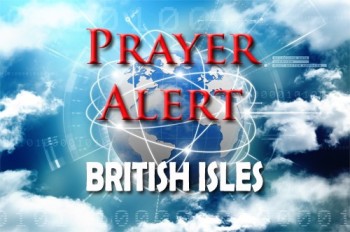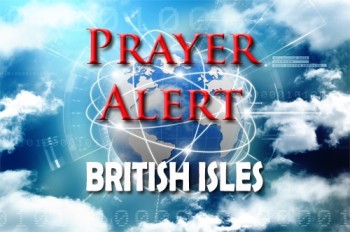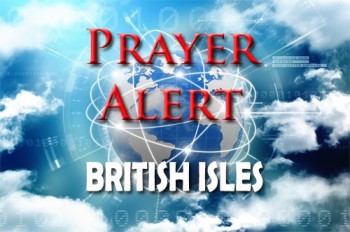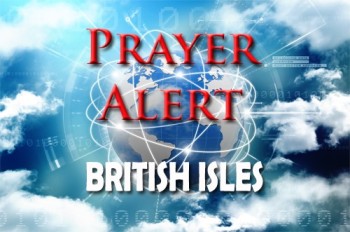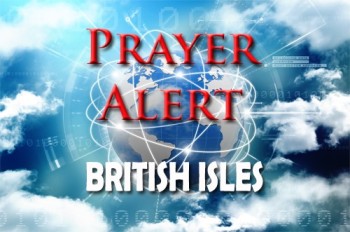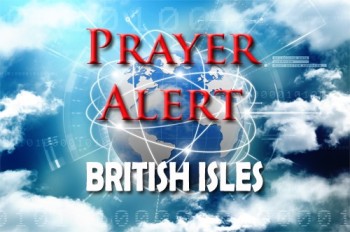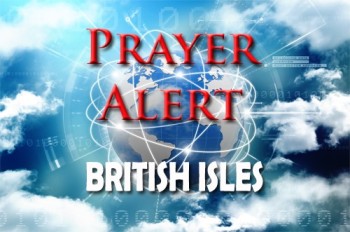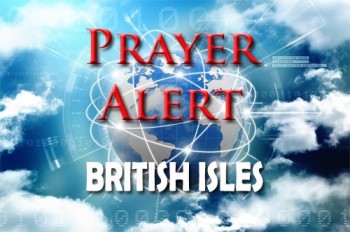Displaying items by tag: NHS
Nurse back at work after suspension for misgendering a transgender paedophile
Christian nurse Jennifer Melle has returned to work after more than ten months of suspension following an incident involving a transgender prisoner. She was disciplined after referring to the patient as ‘mister’ while speaking with colleagues, despite reporting that she had faced racial abuse and physical threats during the encounter. Although her NHS trust has confirmed it will take no further action, she remains under investigation by the Nursing and Midwifery Council over the language used and for speaking publicly about her treatment. Melle, a south London nurse with twelve years of service, is pursuing an employment tribunal, alleging harassment, discrimination and breaches of freedom of belief. She has expressed gratitude for support received throughout the ordeal, especially by the Christian Legal Centre.
A turning point for cancer treatment?
A new national cancer plan for England has been published, marking a significant moment after years of calls for a long-term, ambitious cancer strategy. The ten-year plan covers prevention, diagnosis, treatment, care, and research, with a central aim for 75% of people diagnosed with cancer to survive at least five years by 2035. Given that cancer outcomes in England have lagged behind comparable nations, this focus on survival has been widely welcomed, though delivering it will be challenging. Positive commitments include a full rollout of lung screening by 2030, stronger emphasis on earlier diagnosis, and meeting cancer waiting time targets by 2029. The plan also highlights innovations such as AI tools and liquid biopsies, and places welcome priority on children’s and young people’s cancer research. Efforts to reduce risk factors like smoking and UV exposure are noted; however, concerns remain about limited detail on implementation, responsibility, and funding. The plan sets oversight structures and promises progress reviews, but its success will depend on sustained investment, clear accountability, and determined delivery across the NHS and research system. See
‘Critical incidents’ at NHS hospitals as winter viruses surge
Six NHS hospital trusts across England have declared critical incidents as winter pressures intensify, driven by rising flu cases, norovirus, Covid, staff sickness, and delayed discharges. Nottingham University Hospitals and Sherwood Forest Hospitals and four others are now on that status, signalling that services are stretched beyond safe capacity. Emergency departments are experiencing unprecedented demand, with some seeing over five hundred patients a day. Hospitals report long corridor waits, cancelled non-urgent procedures, and extreme pressure on frontline staff. NHS leaders say festive gatherings, cold weather, and icy conditions have contributed to a 'bounce back' in winter viruses and related injuries, and flu admissions are rising again after a brief decline. Declaring a critical incident allows trusts to prioritise life-threatening cases, redeploy staff, and restrict visitors to limit infection spread. The NHS continues to urge the public to use alternatives such as NHS 111 and community pharmacies where possible, and to support timely patient discharges.
Last-minute offer may avert strike by resident doctors
A major strike by resident doctors in England, due to begin on 17 December, may be averted after ministers offered the British Medical Association a new deal centred on expanding training opportunities rather than pay. The BMA has agreed to put the offer to members in an online survey closing on 15 December. If members support it, the five-day walkout could be cancelled. The proposal includes 4,000 additional specialist training posts by 2028, with 1,000 available next year, and measures to prioritise UK-trained doctors for competitive roles, as well as covering exam fees and other expenses. However, it contains no pay increase; health secretary Wes Streeting insisted that pay negotiations are closed following nearly 30% rises over three years. Criticising the BMA for not immediately suspending strike plans, he warned that hospitals must now begin cancelling appointments to prepare for potential disruption during a difficult winter. The BMA says strikes have forced government action but stresses the offer does not address long-term pay erosion. If members indicate the deal is insufficient, the strike will proceed.
Thousands of NHS staff to lose jobs after deal approved
Thousands of NHS administrative and managerial staff in England are set to lose their jobs after the Treasury approved a deal allowing the health service to overspend this year to fund redundancy costs. Earlier, the government confirmed that 18,000 roles would be cut as part of major reforms bringing NHS England back under the Department of Health and halving staff numbers in local Integrated Care Boards. The £1bn cost of pay-offs will be recovered in future years through expected savings, with ministers insisting no additional funding is being provided beyond existing spending plans. Health secretary Wes Streeting argued that patients and staff want bureaucracy reduced so frontline care can be prioritised, saying the reforms would help rebuild the NHS. Government estimates suggest the changes could save £1bn annually, enough to fund over 100,000 extra hip and knee operations. However, the Royal College of Nursing warned that losing expert staff risks harming patient care rather than improving it. NHS leaders have called the agreement 'pragmatic' but acknowledged the uncertainty and disruption facing affected workers.
Starmer’s NHS plan promises more GPs and local health hubs
Keir Starmer has unveiled an ambitious ten-year plan to transform the NHS by shifting healthcare from hospitals to local communities. Central to the proposal are 200 new 'neighbourhood health centres', offering scans, outpatient services, mental health support, and more - all aimed at reducing hospital demand. Starmer declared the NHS must 'reform or die’, pledging accessible, community-based care under one roof. Health secretary Wes Streeting promised thousands more GPs, reversing current trends favouring hospital consultants, and aims to slash waiting lists while prioritising British doctors for NHS jobs. The plan also includes an enhanced NHS app, AI safety alerts, and a focus on helping patients return to work. However, experts express caution, noting that past governments have announced similar visions without delivering meaningful change. Questions remain over funding, but Starmer insists the plan will 'fundamentally rewire' healthcare and prioritise patient-centred care, especially in deprived areas.
Prosecutors consider more charges against Lucy Letby
Prosecutors are considering bringing further charges against Lucy Letby, the former neonatal nurse already serving fifteen whole-life sentences for murdering seven babies and attempting to murder seven more between 2015 and 2016 at the Countess of Chester Hospital. The Crown Prosecution Service confirmed it has received a full file of evidence from Cheshire Police regarding additional deaths and non-fatal collapses of infants at both the hospitals where Letby had placements in 2012 and 2015. Meanwhile, three former senior managers at the Countess of Chester have been arrested on suspicion of gross negligence manslaughter after a separate investigation into systemic failures at the hospital. A public inquiry into how Letby was able to commit her crimes continues, with its final report expected early next year. Her legal team maintains her innocence, citing international medical experts who attribute the babies’ deaths to poor medical care and natural causes. The Criminal Cases Review Commission is reviewing her convictions for potential miscarriage of justice.
NHS plans more robotic surgeries to speed up treatment times
The NHS is planning a major expansion of robotic-assisted surgery to improve treatment times and patient outcomes. Currently, one in five keyhole surgeries is robot-assisted, but NHS England projects this will rise to 90% by 2035, with procedures increasing from 70,000 annually to around 500,000 over the next decade. Health secretary Wes Streeting, himself a kidney cancer survivor who benefited from robotic surgery, highlighted the potential of such technologies to transform healthcare delivery. Robot-assisted surgery enables greater precision, faster recovery, and shorter hospital stays. Surgeons operate using a console linked to robotic instruments and cameras, with some orthopaedic surgeries already partially automated. NHS leaders stress that embracing innovation, including robotics, AI, and data research, is essential to meet targets like reducing elective waiting times by 2029. John McGrath, chair of the NHSE robotic surgery committee, added that efficient use of robotic surgery could ease system-wide pressure. The initiative aligns with broader efforts to modernise the NHS and deliver faster, more effective care to patients across multiple medical fields.
Norovirus warning: stay at home for 48 hours
The UK Health Security Agency (UKHSA) has issued a strong public warning about norovirus, urging anyone affected to remain at home for 48 hours after symptoms cease, as individuals can still be infectious. Known as the ‘winter vomiting bug’, norovirus causes vomiting, diarrhoea, and severe discomfort. While typically seasonal, England has seen an alarming spike in cases, with 14,959 reported between 31 March and 27 April - more than double the five-year average. Hospital outbreaks are also up 43.3% above historical norms. Though recent weeks show a slight decline, infection levels remain significantly high. Norovirus spreads easily via contaminated food, surfaces, or close contact, and can be transmitted even before symptoms begin. The UKHSA stresses the importance of staying home, avoiding hospitals or GP visits while symptomatic, and refraining from cooking for others until 48 hours after recovery. Parents are advised not to send children to school during this period, and all should practice vigilant hygiene to prevent spread.
NHS launches world-first gonorrhoea vaccine
NHS England will become the first health system in the world to offer routine vaccination against gonorrhoea, as infections reach record highs. Targeting those most at risk, primarily gay and bisexual men with a history of multiple partners, the vaccine is expected to begin rollout through sexual health clinics in August. Adapted from the MenB meningitis vaccine, it is estimated to reduce gonorrhoea risk by 30–40%. Though not originally designed for STIs, the bacteria responsible for gonorrhoea is closely related to the meningitis B strain. England recorded over 85,000 cases in 2023—the highest since records began in 1918. The spread of antibiotic-resistant strains has heightened concerns, making prevention more vital than ever. If uptake is strong, the vaccine could prevent 100,000 cases and save the NHS £8 million over ten years. Public health leaders in Scotland and Northern Ireland are exploring similar programmes. Experts emphasise that while not a cure-all, the vaccine marks a significant step in reducing the spread of a challenging and increasingly drug-resistant infection.

